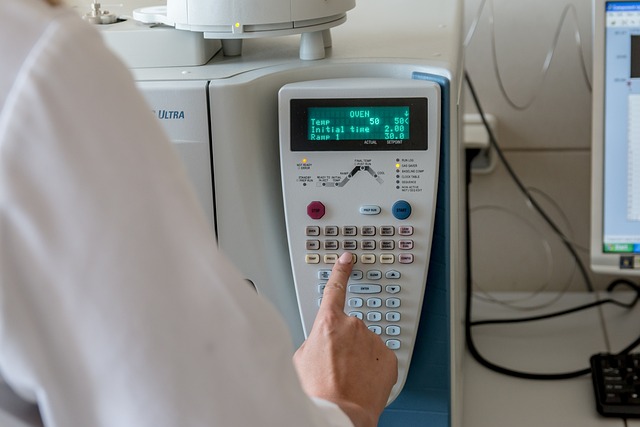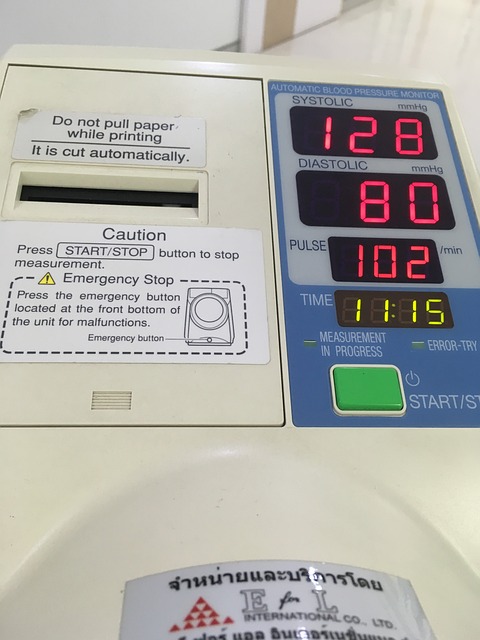The article emphasizes the critical role of kidney function tests for UK patients, including measurements like eGFR, BUN, and serum creatinine levels, in diagnosing and monitoring renal health. These tests are pivotal for individuals with conditions such as diabetes and hypertension, which can impact kidney performance over time. The UK Standard Thyroid Blood Test is highlighted for its importance in evaluating thyroid function's influence on kidney processes by measuring hormone levels like TSH, T4, and T3. This test is readily accessible through the NHS and is crucial for diagnosing thyroid conditions that can affect renal health indirectly. Healthcare professionals use these tests to tailor treatment plans based on patient-specific factors and comprehensive clinical evaluations, ensuring early detection and intervention. Patients can find reliable information about kidney health online, with the eGFR being a key indicator that can be assessed through a routine blood test. It's important for patients to access NHS-accredited laboratories for precise test results and to discuss these with their GP for personalized care and treatment planning.
UK patients seeking insights into their kidney health now have a digital gateway at their fingertips. Our comprehensive article demystifies kidney function tests, emphasising the importance of the UK Standard Thyroid Blood Test in assessing renal health. With a focus on navigating online resources, patients can access reliable testing services from home. Delve into this guide to understand how to effectively utilise these tools for maintaining optimal kidney function.
- Understanding Kidney Function Tests for UK Patients: A Comprehensive Guide
- The Role of the UK Standard Thyroid Blood Test in Assessing Renal Health
- Navigating Online Resources: Accessing Accurate Kidney Function Tests in the UK
Understanding Kidney Function Tests for UK Patients: A Comprehensive Guide

For UK patients seeking to understand their kidney health, kidney function tests are pivotal diagnostic tools that offer insights into renal performance. These tests measure various parameters such as glomerular filtration rate (eGFR), blood urea nitrogen (BUN), and serum creatinine levels, providing a comprehensive evaluation of how well the kidneys are functioning. The eGFR, in particular, is an estimation that reflects the kidneys’ ability to filter waste products from the blood, tailored to the UK population using the Cockcroft-Gault equation or the Modification of Diet in Renal Disease (MDRD) study equations. It’s imperative for patients to undergo these tests regularly, especially those with conditions like diabetes or hypertension, which can affect kidney function over time. Additionally, UK patients have access to standardized tests like the Thyroid Blood Test, which can influence thyroid hormone levels and subsequently impact kidney function. Understanding these interrelations is crucial for early detection and management of any renal issues, ensuring timely intervention and maintaining overall health. Patients in the UK can access these tests through their general practitioner or specialist clinics, with results interpreted by healthcare professionals to guide treatment decisions and patient care.
The Role of the UK Standard Thyroid Blood Test in Assessing Renal Health

The UK Standard Thyroid Blood Test plays a pivotal role in the comprehensive assessment of renal health. This test measures levels of thyroid-stimulating hormone (TSH), thyroxine (T4), and triiodothyronine (T3), which are critical indicators of thyroid function. Thyroid hormones influence metabolism throughout the body, including the kidneys, where they regulate fluid balance and electrolyte composition. Abnormal levels of these hormones can impact renal function, leading to conditions such as thyroid-induced hypertension or nephropathy. For UK patients, this test is readily available through the NHS and serves as a preliminary step in diagnosing and monitoring thyroid disorders, which can indirectly affect kidney health. It is imperative for healthcare providers to interpret these results within the context of renal function, considering factors such as age, gender, and the presence of comorbidities that might influence thyroid-related markers. The UK Standard Thyroid Blood Test, when used in conjunction with other diagnostic tools and clinical assessments, provides valuable insights into a patient’s overall endocrine and renal status, facilitating informed decisions regarding treatment and management.
Patients in the UK can access the UK Standard Thyroid Blood Test through their general practitioner or through specialized endocrinology clinics. The results of this test, when analyzed alongside serum creatinine and estimated glomerular filtration rate (eGFR), offer a comprehensive picture of thyroid health’s impact on renal function. This integrated approach to diagnostics is crucial for early detection and intervention in cases where the thyroid may be influencing kidney performance, thereby preventing potential complications and ensuring optimal patient outcomes. It is through such targeted testing and careful analysis that healthcare professionals can effectively manage thyroid-related conditions and their implications on renal health within the UK’s healthcare system.
Navigating Online Resources: Accessing Accurate Kidney Function Tests in the UK

For UK patients seeking to understand their kidney health, navigating the vast array of online resources can be a daunting task. It’s crucial to access reliable and accurate information that reflects the standards of healthcare within the UK. One such test that is commonly recommended for assessing kidney function is the Estimated Glomerular Filtration Rate (eGFR), which is calculated based on age, gender, race, and serum creatinine levels. Patients can obtain this measurement through a routine blood test, with the UK Standard Thyroid Blood Test often being a starting point as thyroid issues can indirectly impact kidney function.
To ensure accuracy, patients should rely on NHS-endorsed online resources or consult their GP for guidance on interpreting these tests. The National Health Service (NHS) provides a comprehensive database of accredited laboratories across the UK where such tests can be performed. These laboratories adhere to strict standards and use precise equipment, guaranteeing the reliability of the results. Additionally, patients can access their lab results securely online through the NHS systems, allowing for better management of their kidney health in collaboration with their healthcare providers. It’s advisable to discuss any abnormal test results with a healthcare professional who can provide context and advise on appropriate follow-up actions.
UK patients now have a straightforward and accessible pathway to understanding their kidney function through online resources. The article has illuminated the significance of kidney function tests, the role of the UK Standard Thyroid Blood Test in assessing renal health, and how to navigate the plethora of available online information securely and accurately. With this knowledge, individuals can proactively manage their health, ensuring they receive timely and informed care. The digital landscape offers a reliable tool for monitoring kidney function from home, complementing traditional healthcare practices and facilitating better health outcomes.
